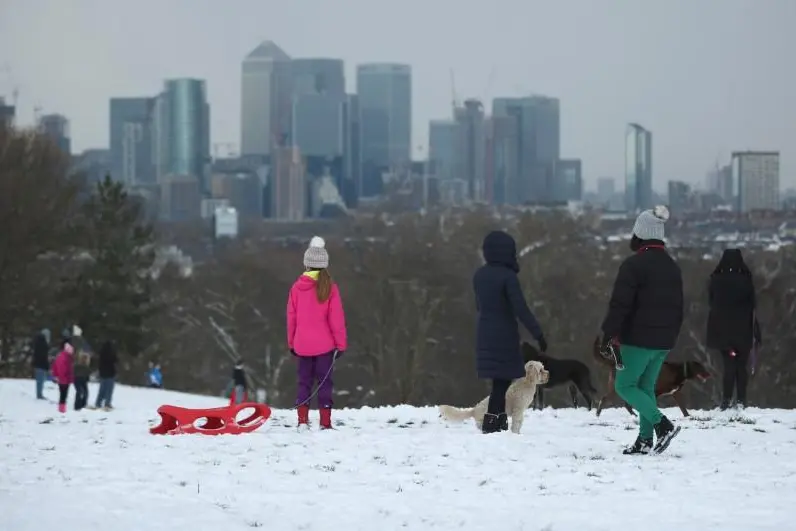PHOTO
LONDON - Heavy snow and weak consumer demand weighed on British services businesses last month, which grew at the slowest rate since just after the vote to leave the European Union in June 2016, a survey showed on Thursday.
The IHS Markit/CIPS services Purchasing Managers' Index (PMI) tumbled to 51.7 in March from February's reading of 54.5, its lowest reading since July 2016 and a bigger fall than any economist had forecast in a Reuters poll.
Britain's construction PMI showed a similar drop on Wednesday, although manufacturing held up better.
Looking at the first three months of 2018 as a whole, the figures suggest Britain's economy grew at a quarterly rate of just below 0.3 percent, down from an already-modest 0.4 percent at the end of 2017, IHS Markit said.
Reflecting the downbeat mood among consumers, as well as a tax increase in 2017, separate data showed new car registrations last month were 16 percent lower than a year earlier.
"The UK economy iced up in March, suffering the weakest increase in business activity since the Brexit vote amid widespread disruptions caused by some of the heaviest snowfall in years," said Chris Williamson, IHS Markit's chief business economist.
A Siberian weather system that meteorologists called "the Beast from the East" brought rare snowand sub-zero temperatures to much of Britain in late February and early March.
PMI data for the euro zone have also weakened due to the weather, but economists still predict the bloc will outpace Britain in the first quarter with growth of 0.5 percent.
However, the temporary cause of the business disruption meant the data did little to shift market expectations that the Bank of England's Monetary Policy Committee would raise interest rates next month for only the second time since the financial crisis.
"If GDP is weak due to the weather, the MPC will probably look through it and there will be an offsetting bounce next quarter," Scotiabank fixed-income strategist Alan Clarke said.
Not all the weakness in the PMI was weather-related, though.
IHS Markit said British services businesses reported weak consumer demand as well as concern about the country's departure from the EU in a year's time as being behind the slowest growth in new orders since July 2016.
Broader business sentiment also fell to its joint-lowest level since July 2016.
The BoE said last month that while the snow was likely to cause first-quarter economic growth to slow to 0.3 percent, "an ongoing tightening of monetary policy" would be needed to bring above-target inflation back to its 2 percent target.
High inflation caused by the pound's fall after the Brexit vote has sapped consumer demand over the past year, and British growth has slowed to be the weakest of any major economy at a time of a global upturn.
(Reporting by David Milliken, graphic by Andy Bruce, editing by Larry King)
© Reuters News 2018





















